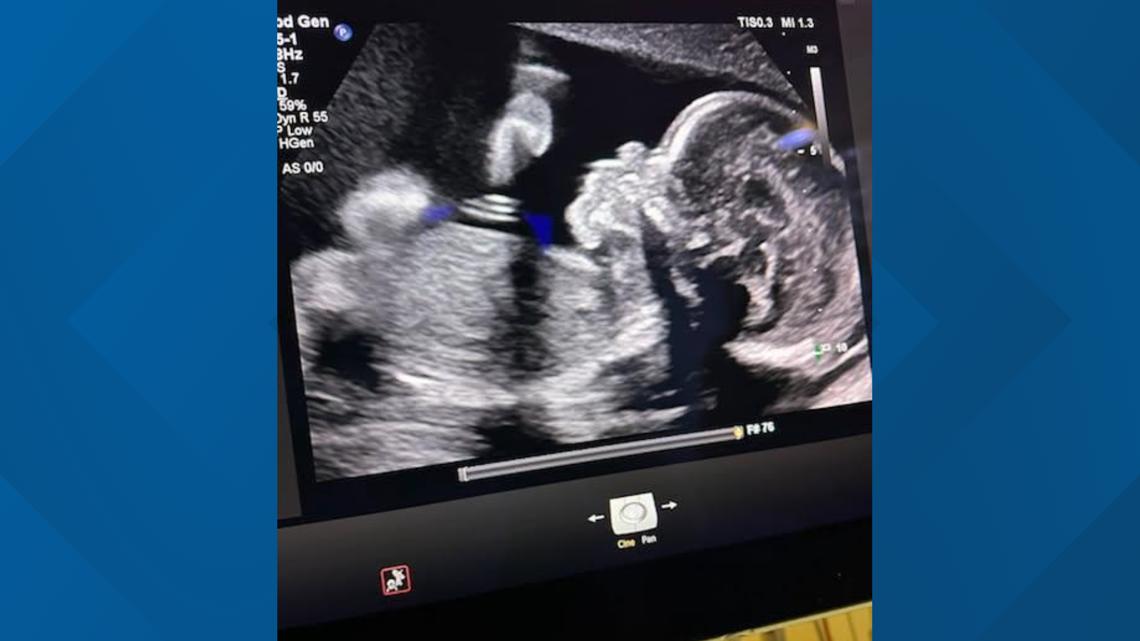Adriana Smith’s been on life support 90+ days with weeks to go in her pregnancy. Her family questions Georgia’s heartbeat law — and why they had no say in her care.
ATLANTA — The family of a 30-year-old metro Atlanta mother and nurse said she was declared brain dead more than 90 days ago — but is still being kept alive because she’s pregnant.
Adriana Smith, a registered nurse at Emory University Hospital, was nearly nine weeks pregnant in early February when she started experiencing intense headaches. According to her mother, April Newkirk, Smith sought treatment at Northside Hospital but was released after being given medication.
“They gave her some medication, but they didn’t do any tests. No CT scan,” Newkirk said. “If they had done that or kept her overnight, they would have caught it. It could have been prevented.”
The next morning, Newkirk said Smith’s boyfriend woke to her gasping for air in her sleep—gargling sounds he believes were caused by internal bleeding.


He called 911. Smith was taken to Emory Decatur and later transferred to Emory University Hospital where she worked. A CT scan revealed multiple blood clots in her brain.
“They asked me if I would agree to a procedure to relieve the pressure, and I said yes,” Newkirk said. “Then they called me back and said they couldn’t do it.”
Smith was declared brain dead. Her family has been by her side every day since, including her young son, who they said still believes his mother is just sleeping.


“She’s been breathing through machines for more than 90 days,” Newkirk said. “It’s torture for me. I see my daughter breathing, but she’s not there. And her son—I bring him to see her.”
On Tuesday, Smith was moved to Emory Midtown, which doctors told the family is better equipped for obstetric care.


The plan now is to keep Smith alive until doctors believe the baby can survive outside the womb — likely at 32 weeks gestation. Newkirk said Smith is currently 21 weeks pregnant.
Under Georgia’s heartbeat law, abortion is banned once cardiac activity is detected — typically around six weeks into pregnancy. The law includes limited exceptions for rape, incest, or if the mother’s life is in danger. But in Adriana’s case, the law created a legal gray area.
Because she is brain dead — no longer considered at risk herself — her medical team is legally required to maintain life support until the fetus reaches viability.
The family said doctors told them they are not legally allowed to consider other options.
“I think every woman should have the right to make their own decision,” Newkirk said. “And if not, then their partner or their parents.”


She adds that while the family might not have chosen to end the pregnancy, the fact that the law stripped them of that choice has added to their trauma.
Newkirk said doctors told the family the baby has fluid on the brain and they’re not sure how much fluid. They’re concerned about his health.
“She’s pregnant with my grandson. But he may be blind, may not be able to walk, may not survive once he’s born,” Newkirk said.
“This decision should’ve been left to us. Now we’re left wondering what kind of life he’ll have—and we’re going to be the ones raising him,” she said.
With no end in sight and mounting hospital bills, the family is also worried about the long-term financial impact.
Smith’s body is being kept alive through intensive, ongoing medical intervention—care that may continue for several more weeks.
“They’re hoping to get the baby to at least 32 weeks,” Newkirk said. “But every day that goes by, it’s more cost, more trauma, more questions.”
For now, Smith’s family is left clinging to hope—and advocating for change.
Newkirk said she wants people to understand the human toll of Georgia’s laws and the emotional weight of being stripped of medical decision-making during a crisis.
In most cases in other states, the decision would defer to the mother’s wishes or those of her next of kin. This is also under the assumption that it would be difficult for the fetus to make it to viability with the mother’s condition, so the family could choose to terminate.
In this case, because Smith is no longer technically at risk, doctors are required to maintain life support until the fetus can survive on its own — regardless of the family’s wishes.



